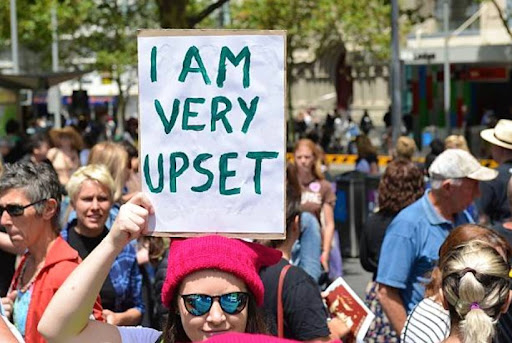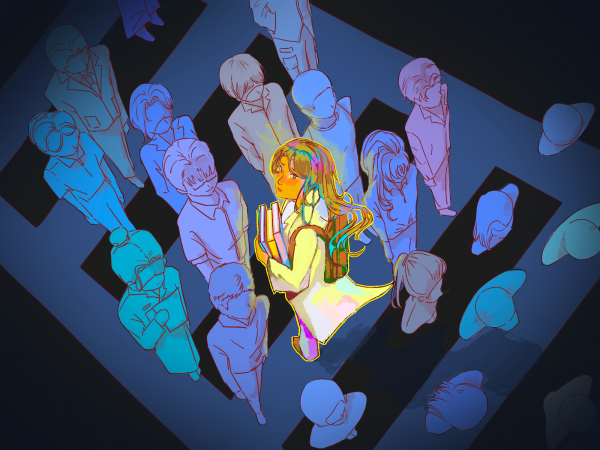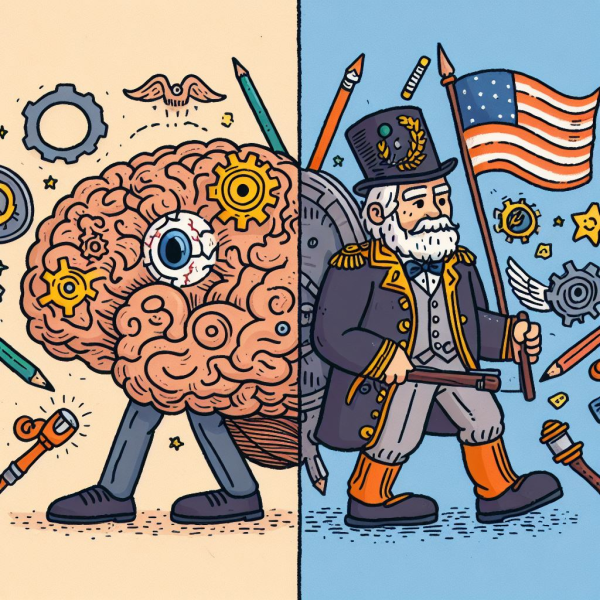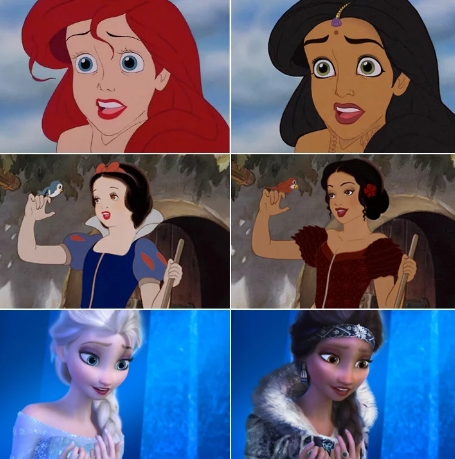Cancel Culture: Modern Day Witch Trials

Woman hits the streets to declare that she is very upset.
Amy Cooper hit the headlines in May of last year. In a Karen-esque incident that left the nation furious, Amy Cooper, a white middle aged woman, freaked out and called the cops on a Christian Cooper, a black birdwatcher in Central Park. Why? She claimed she felt unsafe and was being threatened by him, even though he was completely minding his own business. Luckily, Christian Cooper’s video recording captured the event.
Amy was fired within a day. The world rejoiced. And it seemed the story ended there. Finally, racism and bigotry was being met with real world consequences. But the story didn’t end there. The internet tore Amy apart. Tiktok, Twitter, Instagram. On every app, the video spread, and the comments swelled with hate. Some would argue that it was deserved. After all, who had ever seen such a blatant display of privilege? So the onslaught continued.
The Central Park Civic Association asked the New York City Mayor to ban Amy Cooper from the park. The Manhattan District Attorney (DA) charged her with filing a false police report, a misdemeanor with a maximum penalty of up to one year in jail. She then received death threats and was doxxed, which she said caused her to feel suicidal and forced her to leave the United States.
This side of the story isn’t told. The tale ends with Amy Cooper losing her job. Cancel culture at work, we think with satisfaction. But cancel culture is more devious than we like to believe. Fundamentally, cancel culture is a weapon. It’s a weapon that we cannot control, because it is guided by the emotions of the crowd. Like all weapons, cancel culture can be used to bring about more equity, but for the most part, cancel culture is a tool with the capacity to destroy a person.
In fact, Christian Cooper himself said in a Washington Post op-ed piece that “it’s a mistake to focus on this one individual. The important thing the incident highlights is the long-standing, deep-seated racial bias against us black and brown folk that permeates the United States.” Christian Cooper’s words point out something important about cancel culture: the punishment doesn’t really help with the real problems. Screwing over Amy Cooper might have felt good, but it prematurely closed the case. In reality, the problem was her racist and privileged mentality, but no organization or group wanted to help her grow after the incident. They had to cut ties with her to avoid being canceled themselves. An Atlantic op-ed on cancel culture perfectly explains this: “Brands will gravitate toward low-cost, high-noise signals as a substitute for genuine reform, to ensure their survival.” Her company publicly fired her, and the entire city of New York punished her. Even so, there were no avenues helping Amy Cooper to unlearn her racism.
Some would say that it’s her own responsibility to become a decent person, but the world didn’t really allow that. She was labeled. How could she possibly grow such a public debacle? Suppose she went to do community service and began to feel bad about her previous actions. What could she do to undo her public perception? To get a job again? To re-enter society? She could make a public apology, the commonly chosen option for those facing cancel culture. Even then, how could she authentically get across to people? Millions would call her out for performative activism. She would forever be hated, because that’s what cancel culture does to a person. It weaponizes the public against them.
These examples of normal people being punished for their mistakes are uncountable. Niel Golightly, ex-senior vice president of communications for Boeing resigned in July of 2020, after an employee called an article he wrote thirty three years ago “embarrassingly wrong and offensive.” Yes, the article was sexist and offensive, in which he opposed women’s service in the military. However, it was written more than three decades ago. Three decades. Golightly stepped down and had to issue a public apology for his misguided beliefs that he held a third of a century ago. Even Barack Obama himself, the beaming emblem of progressivism, only changed his position on same-sex marriage in the 2010s. People change- an idea that is lost with cancel culture.
If the goal of cancel culture is to make the world better, it most certainly misses the brief. One big reason for this is because cancel culture has evolved from its roots in the MeToo movement to focusing on small things. Originally, cancel culture was a means of calling out big celebrities and companies for their problematic words or actions. In this form, it was a matter of transparency. It was meant to tell the world, You know Harvey Weinstein? Stay away from him! It was like whistleblowing for everyday people.
Now, cancel culture is often misapplied. Nowadays, celebrities who are being canceled are hardly huge criminal offenders who have been hiding their misdeeds. Cancel culture is just a way to scrutinize and take down influencers. Just weeks ago, musical artist Lizzo faced a wave of cancel culture on her social media platforms. After calling Chris Brown her “favorite person,” she was dragged online, because Chris Brown apparently has a well-known history of sexual assault. In her Tiktok comments, thousands of commenters demanded her address the issue. Hate comments flooded the section. Swarms of people demanded she be held accountable. Accountable for what? What exactly is the crime? In the midst of hundreds of hate comments, a comment in her Tiktok makes an important point, saying, “Funny how no one [had anything to say] to the literal hundreds of artists that collab[orate] or are friends with [Chris Brown].” Another one says, “Y’all were just waiting for a reason to hate on her.” Other comments posit that Lizzo is being scrutinized because of her identity as a black woman, and people are jumping on it because it’s easy to take her down. Another recent instance of cancel culture is with Willow Smith, another black singer/songwriter. In July of 2021, people on Tiktok began to accuse Willow of culturally appropriating Hinduism, since she had a photoshoot in 2015 in which she dressed up as the Hindu goddess Kali. Despite Willow literally practicing Hinduism, many are still extremely upset, explaining that she is not fully Hindu, and was therefore being disrespectful. Yet, once again, the hate and attention these small issues are drawing is disproportionally large. Why is it that cancel culture selectively targets these women of color for minor actions that are at most, slightly insensitive?
Even worse, in the instances where there are celebrities who have done bad things, they’re able to get away with it, because canceling influencers has become so commonplace that the effect is diluted. The sentiment is, Oh man, we’re canceling another one? Can we just not? While cancel culture targets everyday people like Amy Cooper and Niel Golightly with overkill, it barely scratches big celebrities who have large enough followings to alter the narrative. For instance, James Charles and Shane Dawson have faced numerous allegations of making racist, sexist, and predatory remarks. Everybody is tired of watching James Charles fake tears. And yet, as their list of offenses grows, these celebrities are still able to maintain their reputation. The reason cancel culture appears to prey on celebrities who are women and people of color is the same reason cancel culture appears to protect certain celebrities: cancel culture is driven by mob mentality. It’s a tool for populism in American society.
A look at global history makes it clear: populism is generally a bad idea. Having millions of people directing hate and anger onto one person is cruel and almost always unhelpful. From its inefficacy to its cruelty, cancel culture brings out the worst in humanity. With the power to ravage anyone’s life, cancel culture has become a weapon of unimaginable magnitude; and weapons this powerful should always be regarded with great caution, like AK47s, but that’s a conversation for another time.











